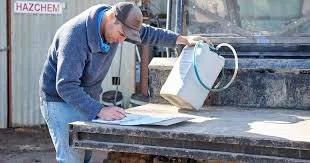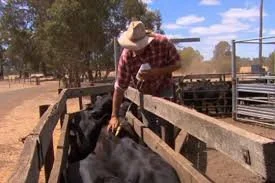Why Hobby Farmers and Small Producers in Australia Need a Chemical Certificate in the Livestock Industry
For hobby farmers and small producers in Australia, managing livestock involves more than just providing feed and shelter. It requires a solid understanding of responsible chemical use to ensure the health of your animals, the safety of your property, and the quality of the products you may sell. Obtaining a chemical user certificate is not just a box to tick—it’s an essential tool for responsible farming.
Why Do You Need a Chemical Certificate?
Legal Requirements
Many states in Australia require you to have a chemical user certificate to purchase, handle, or apply certain agricultural chemicals, including herbicides, pesticides, and drenches. Without this certification, you may face penalties or restrictions that could limit your farm’s productivity.Biosecurity and Animal Health
Chemicals are a critical tool in controlling pests, diseases, and weeds that could harm your livestock or property. The certificate ensures you understand how to use these products safely and effectively, minimizing risks to your animals and the environment.Market Access
If you’re part of the livestock industry, being certified demonstrates to buyers and industry bodies that your products meet quality assurance standards, such as those set by the Livestock Production Assurance (LPA) program. Many buyers and processors require producers to comply with these standards to sell livestock.Environmental Responsibility
Misuse of chemicals can lead to contamination of soil, water, and surrounding ecosystems. Certification equips you with the knowledge to use chemicals responsibly, protecting your property and the environment for future generations.Health and Safety
Working with chemicals poses risks to your health and the health of others on your property. Certification ensures you’re aware of safe handling, storage, and disposal practices to reduce these risks.
Safely storing chemicals with restricted access at the recommended temperature.
What Does the Chemical Certificate Teach You?
Understanding Chemical Labels and Safety Data Sheets (SDS):
Learn how to read and interpret chemical labels and SDSs to ensure you choose the right product for your needs and use it safely.
Application Techniques:
Proper spraying techniques and calibration of equipment to achieve effective results without overuse.
Chemical Selection and Use:
Understand the appropriate chemicals for various pests, diseases, and weeds, and how to use them in alignment with legal and environmental guidelines.
Integrated Pest Management (IPM):
Strategies to reduce reliance on chemicals by incorporating alternative control methods like rotational grazing, biological controls, and pasture management.
Personal Protective Equipment (PPE):
Guidance on selecting, using, and maintaining PPE to protect yourself from exposure to hazardous chemicals.
Record-Keeping Requirements:
Learn to maintain accurate records of chemical use, which is essential for audits under programs like the LPA and for compliance with state regulations.
Environmental and Off-Target Protection:
Techniques to minimise chemical drift and contamination of non-target areas, including waterways and neighbouring properties.
Keeping accurate records and from product name, dosage rate, batch number, expiry to withholding period.
Benefits for Hobby Farmers and Small Producers
Improved Productivity: By using chemicals effectively, you can enhance livestock health, pasture quality, and overall farm output.
Increased Confidence: Certification gives you the skills and knowledge to manage your property safely and efficiently.
Community and Industry Trust: Demonstrating responsible chemical use builds trust with neighbours, buyers, and regulators.
Preparedness for Audits: Stay compliant with industry standards and regulations, reducing stress during inspections or audits.
How to Get Certified
Chemical user training is available through various registered training organizations (RTOs) across Australia. Courses like “AQF Level 3 Chemical Accreditation” are often offered online or in-person and typically take 1–2 days to complete.
After completing the course, you’ll receive a certificate that is valid for several years (usually 5) and can be renewed through refresher courses.
For hobby farmers and small producers, obtaining a chemical certificate is an investment in the future of your property, animals, and livelihood. It ensures you can safely and confidently manage the challenges of livestock farming while contributing to a more sustainable and professional livestock industry.
Would you like assistance finding training providers in your area or guidance on starting the certification process?
Safely applying treatment to the animal at the right does and recording accurate data. This ensures the animal is withheld in withholding periods and correctly documented on the NVD or eNVD upon animal movement.
Registered Providers:
https://www.chemcert.com.au/courses/aqf3-chemical-accreditation-face-to-face/
https://www.agforceqld.org.au/knowledgebase/article/AGF-01006
https://www.auschemtraining.com.au/
https://www.tocal.nsw.edu.au/courses/short-courses/smarttrain-chemical-safety-and-training
Disclaimer:
The information provided in this article is true and correct to the best of my knowledge at the time of publication. It is intended for general guidance and informational purposes only. Readers are encouraged to verify any information and seek independent advice relevant to their individual circumstances, particularly where legal, financial, or regulatory compliance matters are concerned.


